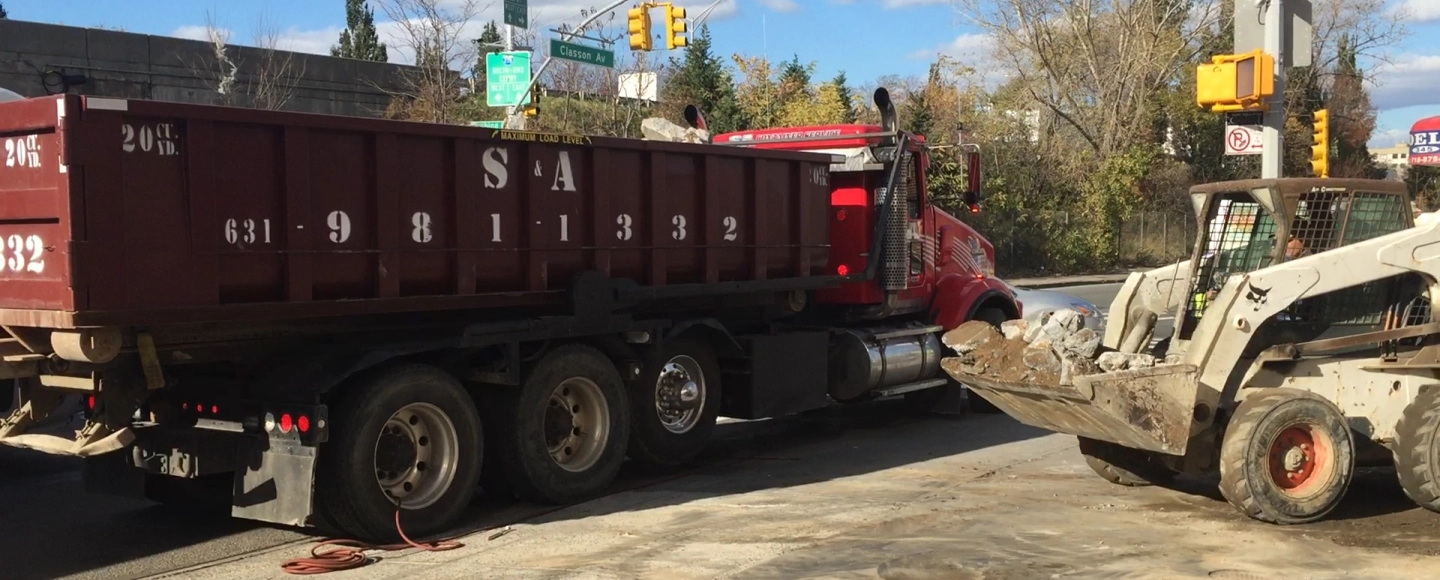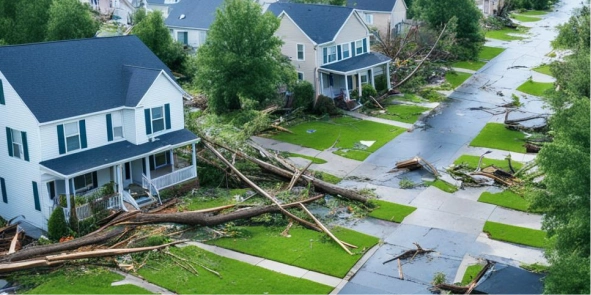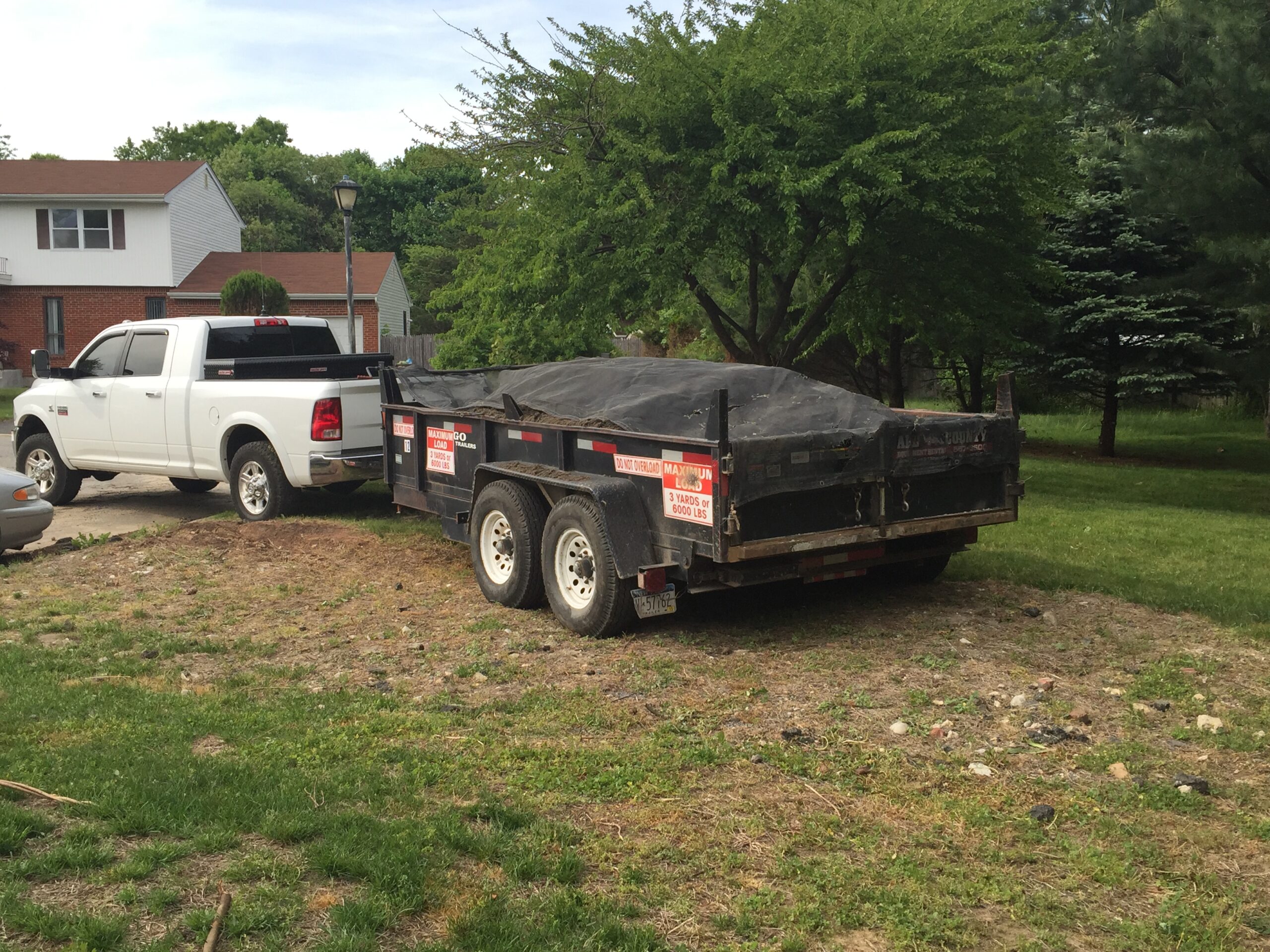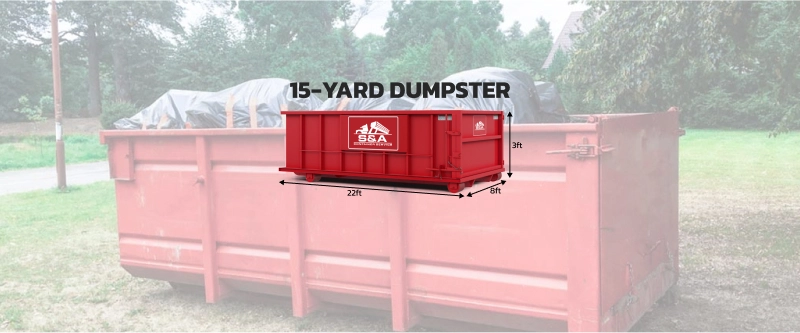Planning a major home remodel, a full-scale landscaping job, or a massive property cleanup as a contractor on Long Island? One question you’ll need to answer early: Should you rent a dumpster for the debris or handle the hauling yourself?
Both options have their pros and cons, but let’s break it down so you can make an informed decision (and avoid those hidden headaches).
Below, we’ll compare temporary, portable dumpsters with the DIY approach of hauling waste on your own.
1. The Case for Dumpster Rentals
If you’re staring down a big pile of debris, dumpster rental might be your best bet. Renting a roll-off dumpster (also known as a portable dumpster or temporary dumpster) is like bringing the disposal site to your doorstep. You fill it at your own pace, and when you’re done, the rental company hauls it away.
Here’s why that’s a big plus on Long Island:
- Time Saver: You skip the multiple trips to the transfer station.
- Cost-Effective: One flat fee often covers drop-off, pickup, and disposal—no surprise costs (as long as you adhere to weight limits and prohibited materials).
- Flexibility: Choose the size that fits your job, whether it’s a small bathroom demo or a whole-house cleanout.
- Local Know-How: Many Long Island haulers know the ins and outs of town permit rules and disposal regulations, saving you from fines or unexpected fees.
Recent articles:
- Budgeting for Construction Waste Disposal
- Tips for Your Next Office Cleanout
- Waste Management for Events – Best Practices
2. The DIY Hauling Approach
If you’re on a budget or your project is relatively small, hauling debris yourself may seem like the more cost-effective option. Of course, it’s about more than just loading up the back of your truck—there’s a lot to consider to get it right.
To begin with, consider the commute. Navigating Long Island’s congested roads, particularly when multiple trips to the transfer station are required, can be both time-consuming and stressful. When you also account for potential wait times at busy facilities and the rising cost of fuel, what initially seemed like a cost-effective solution may ultimately prove to be far less economical.
Then, there’s the issue of disposal costs. Some transfer stations charge by weight or by the load, and that can get expensive quickly if you’ve heavy debris like concrete, roofing shingles, or bricks.
Also, keep in mind that hazardous materials—like paint, solvents, or asbestos—are typically subject to strict regulations and additional fees at most transfer stations. It’s a good idea to double-check what’s permitted before you start loading to avoid any surprises.
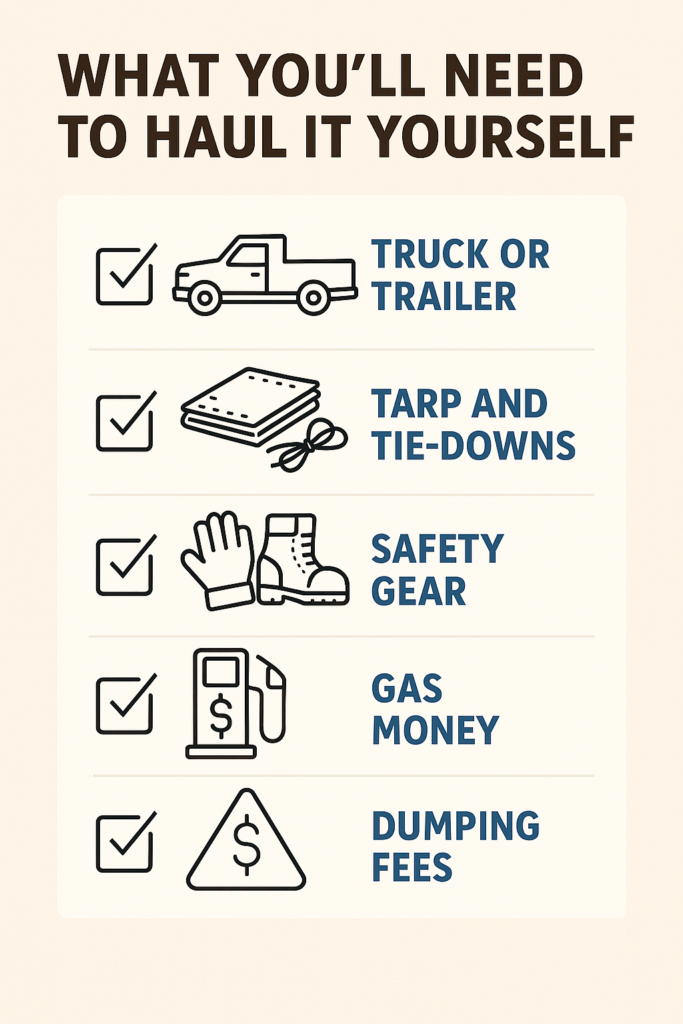
3. Weighing the Costs: Dumpster Rental vs. DIY
This is where it really starts to make sense. While renting a dumpster might seem like a bigger upfront cost, it often ends up being the more cost-effective—and far less stressful—option compared to hauling everything yourself. That’s especially true here on Long Island, where time is valuable and traffic can turn a quick trip to the dump into an all-day project. On top of that, many local transfer stations are littered with nails, bolts, and other sharp debris that can easily ruin a tire—adding unexpected repair costs to your DIY effort.
With a temporary dumpster dumpster, you get one drop-off and one pickup—no driving back and forth. Plus, you can avoid those annoying hidden fees that pop up when you hit a weight limit or bring in something the transfer station doesn’t like.
DIY hauling, on the other hand, might save you a few bucks on smaller jobs—but factor in the value of your time, the wear and tear on your vehicle, and the headache of managing disposal logistics. For bigger jobs, or if you’re dealing with mixed debris, a dumpster rental just makes sense.
4. Long Island Disposal Rules?
Long Island’s disposal rules aren’t always straightforward. Some towns (like Huntington or Brightwaters) require permits for on-street dumpster placement. Others have higher transfer station fees that can add unexpected costs. Plus, if you’re dealing with a tight worksite or older neighborhoods with narrow roads, a roll-off dumpster might be your only practical option.
Local haulers know these quirks and can help you navigate them, saving you both time and money. If you’re going the DIY route, you’ll need to research local transfer station hours, fees, and rules (and plan your commute accordingly).
Get in touch with S&A Container Service for a dumpster rental quote here.
TL;DR Summary
- Dumpster rentals save time: No back-and-forth trips to the transfer station (Long Island traffic—need we say more?).
- DIY hauling can get pricey: Transfer station fees, gas, and your time add up fast.
- Watch for hidden fees: Weight limits and disposal costs can bite you either way.
- Hazardous materials need special care: Paint, asbestos, and chemicals cost extra to dispose of.
- Local know-how matters: Long Island haulers know the permit rules and can help you avoid fines.
